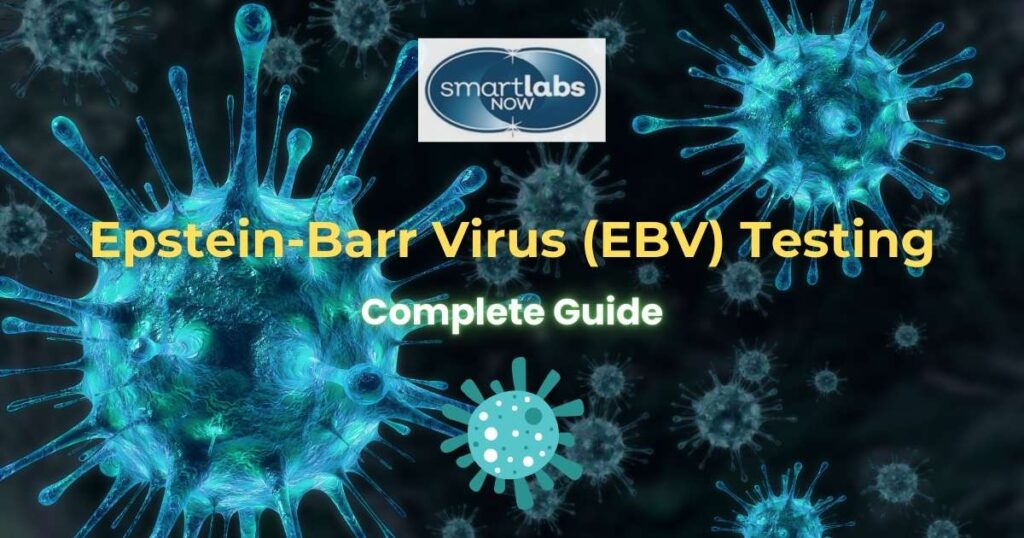
The Epstein-Barr Virus (EBV) is a member of the herpesvirus family and one of the most common human viruses worldwide. Testing for EBV antibodies, such as the EBV Ab VCA IgG, is crucial for diagnosing infections and managing EBV-related diseases.
This guide provides a comprehensive look at EBV antibody testing, helping prospective test-takers understand the purpose, interpretation, and relevance of the test.
At Smart Labs Now, we offer EBV testing under our comprehensive Fatigue Panel. Please sign up here if you want to get screened 🙂:

EBV antibody tests are primarily conducted to detect recent or past infections and to distinguish between different infection stages. In cases where symptoms like fever, sore throat, and fatigue persist beyond six months, testing for EBV becomes essential.
Many people seek EBV testing due to specific symptoms:
Discussing these symptoms with a healthcare provider can help determine if EBV testing is appropriate and clarify what specific tests to request.
These detect viral capsid antigens, with IgM indicating a recent infection and IgG showing immunity from a past infection.
This is associated with the early antigen and usually indicates active or reactivated EBV infection.
These antibodies are generally present in past infections, as they appear after the acute phase.

The Epstein-Barr Virus antibody test panel can include several types of tests, each targeting different antibodies produced in response to EBV infection. These tests help differentiate between current, past, and primary infections.
This detects antibodies to the EBV early antigen, often indicating a current or reactivated infection.
These antibodies typically appear after the primary infection has resolved, helping confirm immunity or chronic infection.
A rapid test that is often used to detect infectious mononucleosis. However, it’s less specific and may not detect all EBV cases.
The CDC recommends a comprehensive antibody panel to confirm EBV, as it provides a detailed infection profile.
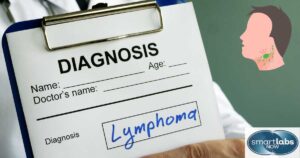
EBV biomarkers serve as indicators of infection, helping clinicians assess the stage and severity of EBV-related conditions.
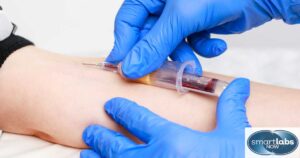
Preparing for an EBV antibody test is straightforward. A blood sample is typically drawn from a vein in your arm or the back of your hand. Here’s what to expect:
A healthcare professional will clean the area, insert a needle into the vein, and draw blood into a vial. Some individuals might experience mild discomfort or bruising at the puncture site.
No specific fasting or preparation is needed, but staying hydrated can make veins easier to access. To help ease the process, inform the technician if you have a fear of needles.

Interpreting EBV antibody test results requires understanding the various antibodies and their implications.
If no antibodies are detected, the individual is likely susceptible to primary infection.
Positive VCA IgM and absent EBNA IgG generally indicate an acute or primary infection.
Interpreting test results should always consider clinical symptoms and history, as some individuals might have reactivated infections with minimal symptoms.

Laboratory reference ranges vary, but certain markers are consistent across diagnostic labs.
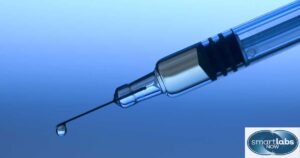
While EBV testing is generally safe, it does carry minor risks, especially for individuals with certain health conditions.
This is common at the needle site, especially in people with thin or fragile veins.
Informing the technician can help mitigate discomfort.
Rare, but the needle site can become infected. Improper sterilization techniques can cause this.
EBV infections are associated with several conditions, including lymphoma, multiple sclerosis, rheumatoid arthritis, lupus, and nasopharyngeal cancer. Awareness of these risks helps guide patients in monitoring long-term health outcomes.
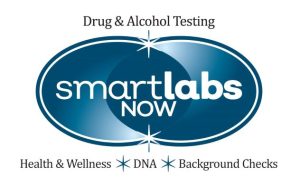
Choose Smart Labs Now for convenient, accurate, and confidential EBV testing services. Our experienced staff offers both on-site/mobile and in-lab testing options designed to meet your needs. Plus, our hands are gentle!
Please consult your primary care physician before engaging with any pharmaceutical, natural substances, or activity regimens mentioned or prescribed in this post. Smart Labs Now is not responsible for health or life outcomes based on the information or recommendations provided. This account does not serve as a substitute for professional medical advice/help.